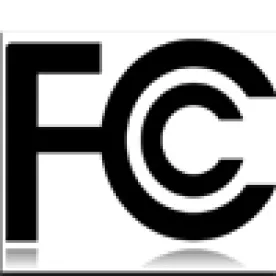$275K Consent Decree for Unauthorized Transfers
Last week, the FCC entered into a Consent Decree with Constellation Club Parent, Inc. (“Constellation”) for failing to seek the Commission’s approval before acquiring wireless radio licenses. Constellation entered into a Consent Decree with the Enforcement Bureau in May of 2019. In May 2021, it disclosed several instances on noncompliant conduct as part of a mandatory disclosure required by the Consent Decree. Specifically, certain Constellation subsidiaries acquired or sold properties in transactions that includes wireless licenses without obtaining FCC consent. Constellation must now pay a $275,000 penalty, implement a Compliance Plan, and submit annual reports to the Commission over the next three years.
Broadband Data Collection Petition
An FCC Public Notice was published in the Federal Register last week, seeking comment on a Competitive Carriers Association (“CCA”) Petition for Declaratory Ruling or Limited Waiver requesting clarification on Broadband Data Collection (“BDC”) filings. Specifically, CCA requests the Commission clarify that BDC filings may be certified by a qualified professional engineer or an otherwise-qualified engineer who does not hold a professional engineer license. Under the FCC’s rules, a certified professional engineer or corporate engineering officer must certify as to the accuracy of each providers’ data submissions. Comments and reply comments are due by June 8 and June 15, respectively.
FCC CORES System Retiring
The FCC released a Public Notice last week announcing that it will be decommissioning its Legacy Commission Registration System (“CORES”) on July 15. The current version of CORES (“CORES2”) will be used to register and/or maintain FCC Registration Numbers going forward. Users will need to register in CORES2 by setting up an account with a unique username and password to associated with their FRN.
Over $2.8B in ECF Funding Request
The FCC announced that it received requests for more than $2.8 billion in the third and final application filing window of the Emergency Connectivity Fund program (“ECF” or the “Program”), which closed earlier this month (Vol. XIX, Issue 21). Applications will be prioritized to fund schools and libraries with the greatest need first, with a preference for schools and libraries located in rural areas. With the roughly $1.5 billion remaining in the Program, the Commission expects to be able to fund requests from many of the 7,369 schools and school districts, 628 libraries and library systems, and 133 consortia which applied.
Gregory E. Kunkle, Casey Lide, Thomas B. Magee, Tracy P. Marshall, Kathleen Slattery Thompson, Sean A. Stokes, Wesley K. Wright also contributed to this article.





 />i
/>i

